This Week in Freethought History (May 12-18)
What can you say about a week that starts with George Carlin and ends with Bertrand Russell? It’s a week in Freethought History! This is more than just a calendar of events or mini-biographies – it’s a reminder that, no matter how isolated and alone we may feel at times, we as freethinkers are neither unique nor alone in the world.
 Last Sunday, May 12, but in 1937, legendary American comic George Carlin was born. Notable as a social critic, after his inspiration, Lenny Bruce, Carlin’s “Seven Dirty Words” routine brought about the 1978 U.S. Supreme Court case F.C.C. v. Pacifica Foundation, in which the Court affirmed the government’s power to abridge free speech on the public airwaves when it includes “indecent” material. George Carlin summed up his feeling about Christianity by saying, “I would never want to be a member of a group whose symbol was a guy nailed to two pieces of wood.” Carlin minced no words about his Atheism, as he said in 1999:
Last Sunday, May 12, but in 1937, legendary American comic George Carlin was born. Notable as a social critic, after his inspiration, Lenny Bruce, Carlin’s “Seven Dirty Words” routine brought about the 1978 U.S. Supreme Court case F.C.C. v. Pacifica Foundation, in which the Court affirmed the government’s power to abridge free speech on the public airwaves when it includes “indecent” material. George Carlin summed up his feeling about Christianity by saying, “I would never want to be a member of a group whose symbol was a guy nailed to two pieces of wood.” Carlin minced no words about his Atheism, as he said in 1999:
When it comes to bullshit, big-time, major league bullshit, you have to stand in awe of the all-time champion of false promises and exaggerated claims, religion. No contest. Religion has actually convinced people that there’s an invisible man living in the sky who watches everything you do, every minute of every day. And the invisible man has a special list of ten things he does not want you to do. And if you do any of these ten things, he has a special place, full of fire and smoke and burning and torture and anguish, where he will send you to live and suffer and burn and choke and scream and cry forever and ever ’til the end of time! But He loves you. He loves you and He needs money!”
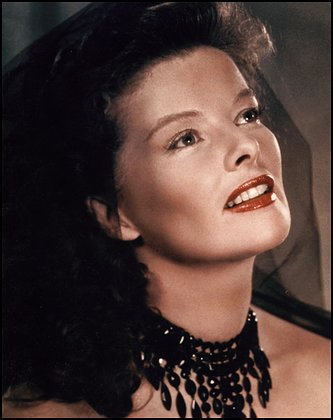 Also last Sunday, but in 1907, four-time Oscar-winning American actress, and “First Lady of Cinema,” Katherine Hepburn was born. She was the daughter of a doctor and a suffragette, both of whom always encouraged her to speak her mind and develop it fully. Hepburn distinguished herself in strong leading-lady roles. From Morning Glory in 1933, which won her her first Oscar – to On Golden Pond in 1981, which won her her fourth Oscar, Hepburn was considered a national treasure. “I’m an atheist, and that’s it,” Hepburn told the Ladies’ Home Journal in 1991. “I believe there’s nothing we can know except that we should be kind to each other and do what we can for each other.” And, as for religion in politics, said Katharine Hepburn, “Our Constitution was not intended to be used by … any group to foist its personal religious beliefs on the rest of us.”
Also last Sunday, but in 1907, four-time Oscar-winning American actress, and “First Lady of Cinema,” Katherine Hepburn was born. She was the daughter of a doctor and a suffragette, both of whom always encouraged her to speak her mind and develop it fully. Hepburn distinguished herself in strong leading-lady roles. From Morning Glory in 1933, which won her her first Oscar – to On Golden Pond in 1981, which won her her fourth Oscar, Hepburn was considered a national treasure. “I’m an atheist, and that’s it,” Hepburn told the Ladies’ Home Journal in 1991. “I believe there’s nothing we can know except that we should be kind to each other and do what we can for each other.” And, as for religion in politics, said Katharine Hepburn, “Our Constitution was not intended to be used by … any group to foist its personal religious beliefs on the rest of us.”
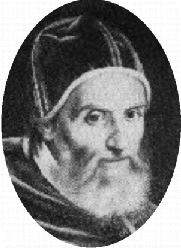 Last Monday, May 13, but in 1572, the pope who reformed the calendar, Gregory XIII, was elected at age 70. The former Ugo Boncompagni was noted for his attempt to force Catholicism back onto the intransigent Protestants – indeed, he struck a gold medal commemorating the massacre of Huguenots on Saint Bartholomew’s Day, 1572. But Gregory XIII is also remembered in history for one innovation: the reform of the calendar that now bears his name. For 1500 years, Christendom had been using the Julian calendar, but 13th century astronomers – educated by Arabic translations of classic texts – had noted that Easter was drifting into summer and separating from the Vernal Equinox; that the assumption that a year comprised exactly 365 days plus six hours was about 11 minutes too long, but that those 11 minutes added up considerably over time! In the papal bull Inter Gravissimas, signed on 24 February 1582 (Old Style), Pope Gregory XIII declared that October 4 should immediately be followed by October 15, omitting the ten days between. Catholic Europe, and especially the vehemently anti-Protestant Gregory, saw the Gregorian calendar as a weapon in the Counter-Reformation, a singularly stupid strategy. As a result, Protestant countries in particular, including the United States, took centuries to adopt the new calendar and enter a more astronomically accurate age.
Last Monday, May 13, but in 1572, the pope who reformed the calendar, Gregory XIII, was elected at age 70. The former Ugo Boncompagni was noted for his attempt to force Catholicism back onto the intransigent Protestants – indeed, he struck a gold medal commemorating the massacre of Huguenots on Saint Bartholomew’s Day, 1572. But Gregory XIII is also remembered in history for one innovation: the reform of the calendar that now bears his name. For 1500 years, Christendom had been using the Julian calendar, but 13th century astronomers – educated by Arabic translations of classic texts – had noted that Easter was drifting into summer and separating from the Vernal Equinox; that the assumption that a year comprised exactly 365 days plus six hours was about 11 minutes too long, but that those 11 minutes added up considerably over time! In the papal bull Inter Gravissimas, signed on 24 February 1582 (Old Style), Pope Gregory XIII declared that October 4 should immediately be followed by October 15, omitting the ten days between. Catholic Europe, and especially the vehemently anti-Protestant Gregory, saw the Gregorian calendar as a weapon in the Counter-Reformation, a singularly stupid strategy. As a result, Protestant countries in particular, including the United States, took centuries to adopt the new calendar and enter a more astronomically accurate age.
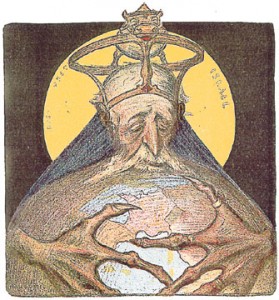 Last Tuesday, May 14, but in 1948, the State of Israel was declared. Sadly, a homeland for Holocaust survivors and other Jews did not end anti-Semitism. The oppression of the Jews throughout the ancient world and through the Middle Ages has been well documented. Evidence of anti-Semitism has been found in the writings from Alexandria, Egypt, as early as the 4th century, BCE. Early Christian anti-Semitism arose out of doctrinal differences, as the new Christian cult began to believe it had to make the break from its Jewish roots. In 1144, a “blood libel” began in England that Jews murdered Christian children and used their blood in the preparation of their Passover meal. Jews fared little better in Muslim countries. In theory, they were to enjoy the protection of the true believers; in practice, Jews were segregated, made to wear distinctive clothing, and otherwise treated as second-class citizens. Although there were bright spots, Jews were expelled from Muslim and Christian countries at whim. Twentieth century Anti-Semitism was driven by envy of perceived economic dominance. The Nazi innovation was in replacing the religious motive for hating Jews with a racial motive – that Jews are by nature an inferior race, not just unbelievers. Adolf Hitler read The Protocols of the Elders of Zion, a Russian forgery appearing in 1905, and commented on them in Mein Kampf. Although Jews co-operated with Catholics in opposing Hitler, the Catholics made a separate peace with the Nazis and abandoned the Jews to the tender mercies of Hitler’s Reich.
Last Tuesday, May 14, but in 1948, the State of Israel was declared. Sadly, a homeland for Holocaust survivors and other Jews did not end anti-Semitism. The oppression of the Jews throughout the ancient world and through the Middle Ages has been well documented. Evidence of anti-Semitism has been found in the writings from Alexandria, Egypt, as early as the 4th century, BCE. Early Christian anti-Semitism arose out of doctrinal differences, as the new Christian cult began to believe it had to make the break from its Jewish roots. In 1144, a “blood libel” began in England that Jews murdered Christian children and used their blood in the preparation of their Passover meal. Jews fared little better in Muslim countries. In theory, they were to enjoy the protection of the true believers; in practice, Jews were segregated, made to wear distinctive clothing, and otherwise treated as second-class citizens. Although there were bright spots, Jews were expelled from Muslim and Christian countries at whim. Twentieth century Anti-Semitism was driven by envy of perceived economic dominance. The Nazi innovation was in replacing the religious motive for hating Jews with a racial motive – that Jews are by nature an inferior race, not just unbelievers. Adolf Hitler read The Protocols of the Elders of Zion, a Russian forgery appearing in 1905, and commented on them in Mein Kampf. Although Jews co-operated with Catholics in opposing Hitler, the Catholics made a separate peace with the Nazis and abandoned the Jews to the tender mercies of Hitler’s Reich.
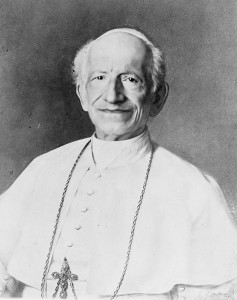 Last Wednesday, May 15, but in 1891, Pope Leo XIII issued the encyclical Rerum novarum, on the “Condition of Labor,” about the relations of employer and employee. That the churches provided any service whatsoever to working people until the 20th century, aside from relieving them under false pretenses of much of their hard-earned money, is about as phony a claim as that of faith-healers. “Let it be taken for granted,” wrote Leo, “that remuneration should be sufficient to maintain the wage-earner in reasonable and frugal comfort.” But when asked to define just what such a “living wage” should be, Leo fell mute. Worse, in 1931 Pius XI issued the encyclical Quadragesimo anno, which (¶¶ 91-94, 133) endorsed the Fascist-Corporate State. The Nazis eagerly complied, as did many other (mostly Catholic) countries. So, without God’s help, workers had to fight for and win the things we take for granted today: the eight-hour day, a five-day work week, overtime pay, workers compensation, retirement, health care and, most especially, the right to organize.
Last Wednesday, May 15, but in 1891, Pope Leo XIII issued the encyclical Rerum novarum, on the “Condition of Labor,” about the relations of employer and employee. That the churches provided any service whatsoever to working people until the 20th century, aside from relieving them under false pretenses of much of their hard-earned money, is about as phony a claim as that of faith-healers. “Let it be taken for granted,” wrote Leo, “that remuneration should be sufficient to maintain the wage-earner in reasonable and frugal comfort.” But when asked to define just what such a “living wage” should be, Leo fell mute. Worse, in 1931 Pius XI issued the encyclical Quadragesimo anno, which (¶¶ 91-94, 133) endorsed the Fascist-Corporate State. The Nazis eagerly complied, as did many other (mostly Catholic) countries. So, without God’s help, workers had to fight for and win the things we take for granted today: the eight-hour day, a five-day work week, overtime pay, workers compensation, retirement, health care and, most especially, the right to organize.
 Also last Wednesday, May 15, but in 1689, English writer Lady Mary Wortley Montague was born. Self-educated in her family’s extensive private library, Mary began writing prose and poetry at an early age She taught herself Latin and translated Epictetus at age 20. Against her father’s wishes, she married Edward Wortley Montagu, a grandson of the Earl of Sandwich, in 1712. While in London, her house became a social and intellectual center for deists. In her time, she was considered the most accomplished woman in Europe. In 1716, she followed her husband to the Ottoman Turkish capital, Constantinople (قسطنطینیه; modern Istanbul) where Edward had been appointed Ambassador. It was there that Mary wrote her Letters from Turkey (1725), “the very first example of a secular work by a woman about the Muslim Orient,” in which she describes considerable deism and skepticism among educated Muslims in Turkey. The letters provided a valuable female perspective on the country where she spent two years of her life. Her personal letters, published in 1906, are full of rationalist sentiments: “Priests can lie, and the mob believe, all over the world,” she writes (during the embassy to Constantinople, 1717). And she condemns “the quackery of all the Churches” and, while professing a belief in “the Author of Nature,” despises “all creeds and theological whimsies.”
Also last Wednesday, May 15, but in 1689, English writer Lady Mary Wortley Montague was born. Self-educated in her family’s extensive private library, Mary began writing prose and poetry at an early age She taught herself Latin and translated Epictetus at age 20. Against her father’s wishes, she married Edward Wortley Montagu, a grandson of the Earl of Sandwich, in 1712. While in London, her house became a social and intellectual center for deists. In her time, she was considered the most accomplished woman in Europe. In 1716, she followed her husband to the Ottoman Turkish capital, Constantinople (قسطنطینیه; modern Istanbul) where Edward had been appointed Ambassador. It was there that Mary wrote her Letters from Turkey (1725), “the very first example of a secular work by a woman about the Muslim Orient,” in which she describes considerable deism and skepticism among educated Muslims in Turkey. The letters provided a valuable female perspective on the country where she spent two years of her life. Her personal letters, published in 1906, are full of rationalist sentiments: “Priests can lie, and the mob believe, all over the world,” she writes (during the embassy to Constantinople, 1717). And she condemns “the quackery of all the Churches” and, while professing a belief in “the Author of Nature,” despises “all creeds and theological whimsies.”
 Last Thursday, May 16, but in 1912, Pulitzer Prize-winning American author “Studs” Terkel was born. Terkel received the Pulitzer Prize for General Non-Fiction in 1985 for The Good War. He has also written such memorable oral histories as Hard Times (1970) and Working (1974). Born into a Jewish family, this self-described “guerrilla journalist with a tape recorder” considered himself an atheist. In a 2001 Rolling Stone interview, Terkel said, “I think of myself as an agnostic, but an agnostic is really a cowardly atheist.” He goes on to say “at the same time I envy those who have faith. Well, I have faith, but they have a religious faith. The recurring phrase used by people in my book is ‘I am not religious, I am spiritual,’ and they don’t mean just Buddhism or pantheism, they mean: ‘I want to believe, but not in something connected to an institution’ – Catholic, Protestant, Jewish, Muslim, whatever it might be.” On the NPR program “The Connection,” broadcast on 15 January 2002 – four years before he died at age 96 – and speaking of death and dying, Terkel called himself an atheist several times.
Last Thursday, May 16, but in 1912, Pulitzer Prize-winning American author “Studs” Terkel was born. Terkel received the Pulitzer Prize for General Non-Fiction in 1985 for The Good War. He has also written such memorable oral histories as Hard Times (1970) and Working (1974). Born into a Jewish family, this self-described “guerrilla journalist with a tape recorder” considered himself an atheist. In a 2001 Rolling Stone interview, Terkel said, “I think of myself as an agnostic, but an agnostic is really a cowardly atheist.” He goes on to say “at the same time I envy those who have faith. Well, I have faith, but they have a religious faith. The recurring phrase used by people in my book is ‘I am not religious, I am spiritual,’ and they don’t mean just Buddhism or pantheism, they mean: ‘I want to believe, but not in something connected to an institution’ – Catholic, Protestant, Jewish, Muslim, whatever it might be.” On the NPR program “The Connection,” broadcast on 15 January 2002 – four years before he died at age 96 – and speaking of death and dying, Terkel called himself an atheist several times.
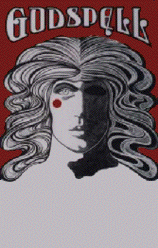 Yesterday, May 17, but in 1971, the Christian musical Godspell opened on Broadway in New York City. Godspell ran for 2,651 performances on Broadway and features the parables and lessons of the Gospel according to Matthew, rather than the life of Jesus. The lessons in Godspell, are surprisingly secular; the parables are of the simple-minded 1970s variety: a gentle Jesus preaches virtuous behavior, adoration of God, doing good works, promoting justice and mercy, and rejecting materialism – without the inherent irony that, if you reject materialism, you pretty much guarantee you’ll never have anything material to reject! None of these things, except for loving God, requires a belief in the supernatural. However, we know that hell awaits the unbeliever because the song, “Learn Your Lessons Well,” threatens “You better pay attention, / Build your comprehension, / There’s gonna be a quiz at your ascension. / Not to mention any threat of hell, / But if you’re smart you’ll learn your lessons well!” In a bizarre twist for any Christian, Godspell ends with the crucifixion – but there is no mention of a resurrection!
Yesterday, May 17, but in 1971, the Christian musical Godspell opened on Broadway in New York City. Godspell ran for 2,651 performances on Broadway and features the parables and lessons of the Gospel according to Matthew, rather than the life of Jesus. The lessons in Godspell, are surprisingly secular; the parables are of the simple-minded 1970s variety: a gentle Jesus preaches virtuous behavior, adoration of God, doing good works, promoting justice and mercy, and rejecting materialism – without the inherent irony that, if you reject materialism, you pretty much guarantee you’ll never have anything material to reject! None of these things, except for loving God, requires a belief in the supernatural. However, we know that hell awaits the unbeliever because the song, “Learn Your Lessons Well,” threatens “You better pay attention, / Build your comprehension, / There’s gonna be a quiz at your ascension. / Not to mention any threat of hell, / But if you’re smart you’ll learn your lessons well!” In a bizarre twist for any Christian, Godspell ends with the crucifixion – but there is no mention of a resurrection!
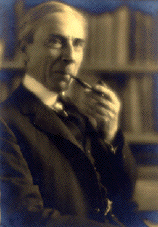 Today, May 18, but in 1872, British mathematician, philosopher and Nobel laureate for literature, Bertrand Russell was born. His chief work was the Principia Mathematica (1910-1913), a three-volume work on the foundations of mathematics, co-authored by Alfred North Whitehead. Russell exercised his social conscience, writing and protesting against World War One, for which he lost a teaching post and later was jailed; protesting against nuclear weapons; and encouraging Rationalism and sexual freedom. Indeed, he wrote, “Religions which condemn the pleasures of sense drive men to seek the pleasures of power. Throughout history, power has been the vice of the ascetic.” Throughout his life, Russell was an outspoken critic of religion. In Why I Am Not a Christian, he wrote, “You find as you look round the world that every single bit of progress in humane feeling, every improvement in the criminal law, every step toward the diminution of war, every step toward better treatment of the colored races, … every moral progress that there has been in the world, has been consistently opposed by the organized Churches of the world. I say quite deliberately that the … Christian religion … has been and still is the principal enemy of moral progress in the world.”
Today, May 18, but in 1872, British mathematician, philosopher and Nobel laureate for literature, Bertrand Russell was born. His chief work was the Principia Mathematica (1910-1913), a three-volume work on the foundations of mathematics, co-authored by Alfred North Whitehead. Russell exercised his social conscience, writing and protesting against World War One, for which he lost a teaching post and later was jailed; protesting against nuclear weapons; and encouraging Rationalism and sexual freedom. Indeed, he wrote, “Religions which condemn the pleasures of sense drive men to seek the pleasures of power. Throughout history, power has been the vice of the ascetic.” Throughout his life, Russell was an outspoken critic of religion. In Why I Am Not a Christian, he wrote, “You find as you look round the world that every single bit of progress in humane feeling, every improvement in the criminal law, every step toward the diminution of war, every step toward better treatment of the colored races, … every moral progress that there has been in the world, has been consistently opposed by the organized Churches of the world. I say quite deliberately that the … Christian religion … has been and still is the principal enemy of moral progress in the world.”
Other birthdays and events this week—
May 12: English nurse and Crimean War mathematician Florence Nightingale was born (1820).
We can look back, but the Golden Age of Freethought is now. You can find full versions of these pages in Freethought history at the links in my blog, FreethoughtAlmanac.com.

